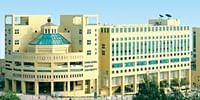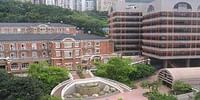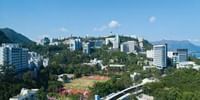Integrated education
To prepare students for real-world challenges, the Master of Science in International Banking and Finance programme offers a relatively fluid curriculum.
?The financial industry wants staff to possess a broad skill-set and to be able to apply interdisciplinary knowledge,? says Lai.
The 20 courses cover topics ranging from corporate finance and macroeconomics to accounting, risk management and derivatives. There is also a careful balance between theoretical and practical aspects.
Regular seminars see industry experts invited to share their insights about investment banking, private equity, venture capital, brokerage operations, fintech and more. According to recent graduates, this practical, up-to-date knowledge can make a big difference when it comes to job hunting.
Students have to complete at least one course in each of five core clusters - corporate finance, international, investment, financial institutions, and quantitative. They need a minimum 30 credits to graduate.
Those who want to go on to a research degree typically find the Master of Science in International Banking and Finance a good stepping stone, and options are also available to combine the programme with one in France, Spain, Switzerland or Britain to obtain a dual master?s qualification.
Lessons lasting a lifetime
?Graduates are known for having good communication and teamwork skills, which are essential for working effectively in the banking and finance sector, government departments or international organisations,? Lai says.
A recognised first degree in a relevant field is the usual prerequisite for admission, but other applicants will also be given due consideration.
?Those with diverse background and experience will always be considered, but may be asked to take pre-programme courses,? says Lai.
The MIBF Program is offered by a strong host, Lingnan?s Department of Economics, which is ranked third among all Economics Departments in Hong Kong in terms of the highest world- leading quality research*. Lingnan University is named a Top-10 Liberal Arts Colleges in Asia by Forbes, and in the list of QS Asia Top 100 Universities in 2018.











